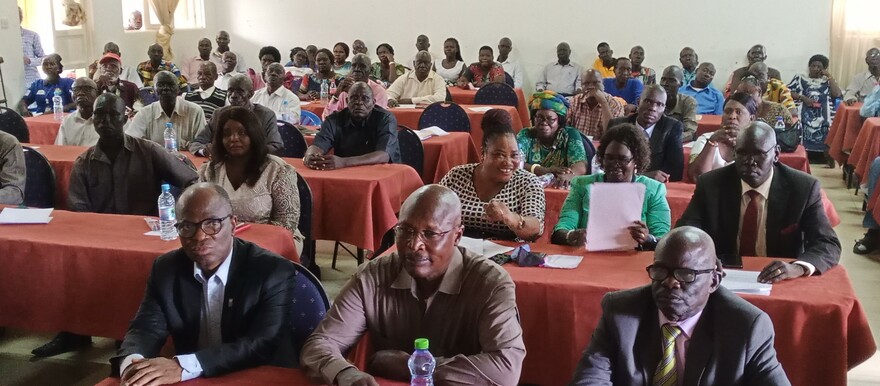Eastern Equatoria state government, in collaboration with its partners, have launched a three-year strategic development plan for 2022-2024 with an estimated cost of SSP 82,400,164,020.
According to the government and development partners, the development plan will be financed by the revenues collected and grants from the national government and other development partners.
The plan, according to officials, was developed last year through a consultative and inclusive approach that captured multiple inputs from stakeholders, UN agencies, NGOs, civil society, and faith-based organizations, including women, youths and people living with disabilities.
Speaking during the launch of the strategic plan, Martha Ojaba Etore, the director general at the state ministry of finance, said the priority areas offer a pathway to socio-economic recovery, peacebuilding and resilience.
The official believes that sufficient financial and technical support from donors will help achieve the plan.
“The biggest challenge is how to implement this three-year development plan with our scarce resources to meet an estimated SSP 82,400,164,020.00 with a deficit of SSP 71,605,509,977.00. This, therefore, calls for a shared effort to mobilize adequate resources to close the gap. Our clear message calls for collaborative efforts from all state actors to install a friendly environment to attract investors for utilization of endowed untapped natural resources to strengthen eastern Equatoria state economy,” she said.
Meanwhile, Eastern Equatoria state minister of finance Mr Martin Lokuju Lotirmoi, says the development plan launch is the second of its kind after the elapse of Eastern Equatoria state strategic plan 2012-2015.
Minister Lotirmoi says the goal of the state government is to bring people out of poverty.
“We will continue to promote good governance, transparency and accountability for proper utilization and management of resources for effective service delivery. Our ultimate goal is to bring our people out of poverty. We want to improve large-scale farming to feed ourselves and even have a surplus for the market,” he said.
“Everyone must have access to affordable quality healthcare and clean water. Every child must be able to get quality education. We want to expand our roads, telecommunication networks and energy supplies and protect our wildlife and environment,” he added.
Mr Titus Osundina, the deputy resident representative for the United Nations Development Programme (UNDP), says his organization looks forward to working with authorities to implement the plan by focusing on the core principles of public financial management.
“The current focus of UNDP is on the comprehensive Public Financial management or PFM implementation but with more emphasis at the subnational level. UNDP has expanded the scope of both human and institutional capacity building to include all pillars of the PFM cycle planning, budgeting, revenue management, procurement, and external and internal audit to ensure that states have what it takes to collect revenues, plan and manage it appropriately to provide social services for the people of South Sudan,” Osundina said
For his part, State Governor Louis Lobong Lojore said the plan aligns with the sustainable development goal, the Africa Agenda 2063, and the revised national development strategy.
“The government of Eastern Equatoria state has a primary objective of improving the people’s living standards through increasing productivity, promoting self-reliance and building resilience. Since peace is the foundation for development, my administration has been trying to avail a conducive environment for the people of Eastern Equatoria to engage in socio-economic activities. We want to bring sustainable peace through development, and through peace, we shall achieve sustainable development,” Lobong said.
The governor, however, said the plan will face some challenges.
“The state depends only on block transfers from the national government and the local revenue collections. Block transfers cater mostly for salaries and operational costs, whereas the projected revenue collection for four years period in the state is about SSP 10.8 billion, leaving a deficit of about SSP 70 billion. Therefore, I urge the national government to increase block transfers, we also call for a reasonable percentage of the revenue collected at border points within Eastern Equatoria,” he said.




